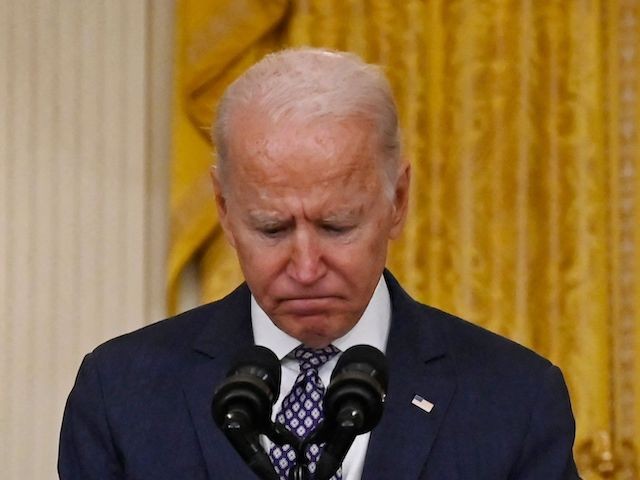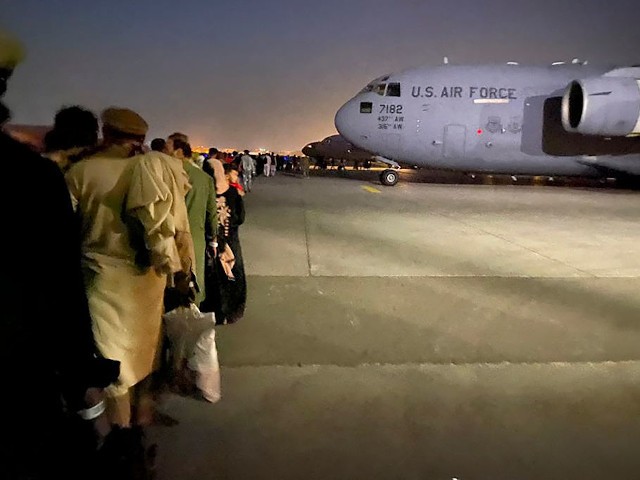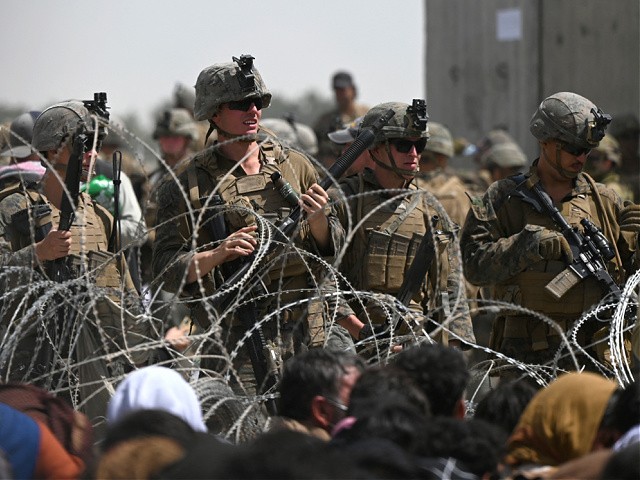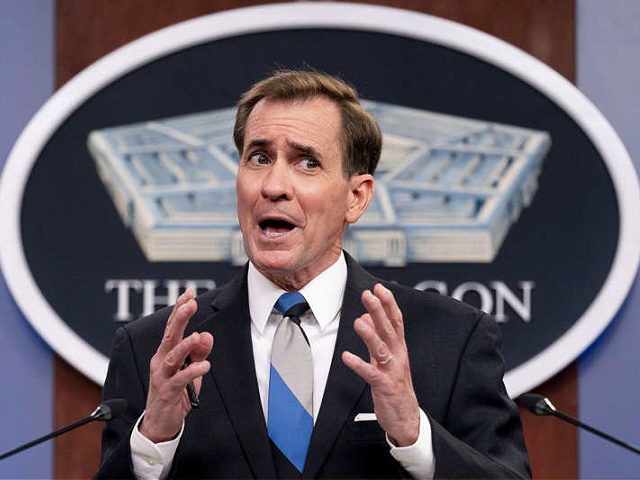The Pentagon contradicted President Joe Biden multiple times Friday, immediately after he delivered remarks on the bungled withdrawal from Afghanistan this week.
Biden said at a White House press conference that al-Qaeda was “gone” from Afghanistan, only to have the Pentagon dispel that notion less than an hour later.
“Look, let’s put this thing in perspective here. What interest do we have in Afghanistan at this point with al-Qaeda gone? We went to Afghanistan for the express purpose of getting rid of al-Qaeda in Afghanistan as well as, as well as getting Osama bin Laden, and we did,” Biden said.
At a Pentagon press conference right afterward, Defense Department press secretary John Kirby was asked how many al-Qaeda members are still in Afghanistan.
“We know that al-Qaeda is a presence as well as ISIS in Afghanistan. And we’ve talked about that for quite some time. We do not believe it is exorbitantly high, but we don’t have an exact figure for you,” he said.
Asked about the discrepancy between Biden and his remarks, Kirby said, “What we believe is that there isn’t a presence that is significant enough to merit a threat to our homeland, as there was back on 9/11, 20 years ago.”

US President Joe Biden, with Vice President Kamala Harris (L) and Secretary of State Antony Blinken, speaks about the ongoing US military evacuations of US citizens and vulnerable Afghans, in the East Room of the White House in Washington, DC, on August 20, 2021. (Photo by ANDREW CABALLERO-REYNOLDS/AFP via Getty Images)
He also said, “nobody’s walking away from the fact” that they are still there and added, “We’re certainly going to maintain as much vigilance as we can, absent a presence on the ground.”
Asked why Biden said there was no national security interest in Afghanistan despite the U.S. military spending 20 years there, Kirby did not directly answer the question.
He said there was a “significant” national security interest in being there “20 years ago” but refrained from saying if it is still a national security interest or not. Instead, he said, “It was time to end this conflict.”
Biden and the Pentagon also clashed over whether Americans were able to get through to the airport to evacuate.
Biden said, “we have no indication that they haven’t been able to get in Kabul through the airport,” and touted an agreement with the Taliban.
“So, we know of no circumstance where American citizens are carrying an American passport are trying to get through to the airport,” Biden said.

Afghan people queue up and board a U S military aircraft to leave Afghanistan, at the military airport in Kabul on August 19, 2021 after Taliban’s military takeover of Afghanistan. (Photo by Shakib RAHMANI / AFP) (Photo by SHAKIB RAHMANI/AFP via Getty Images)
Kirby, less than an hour later, said there are reports of Americans not being able to get through checkpoints to get to the airport.
He said to a reporter, “I would also note, though, Tom, that though there have been sporadic reports of some Americans not being able to get through checkpoints. I fully admit that, by and large, what we’ve been saying is that Americans are able to get through those checkpoints and are able to get onto the airfield.”
Kirby also acknowledged reports that some Americans have been beaten by the Taliban in Kabul, and he did not push back on them. He also said the Biden administration has “communicated to the Taliban” that the attacks are unacceptable.
“We’re certainly mindful of these reports, and they’re deeply troubling, and we have communicated to the Taliban that that’s absolutely unacceptable — that we want free passage through their checkpoints for documented Americans, and, by and large, that’s happening,” Kirby said.
Kirby also acknowledged that the administration could do more to get Americans trapped outside the airport but said he would not talk about “potential future operations” and what that would look like.
The discrepancies contribute to a sense of tension between Biden and his Defense Department.
The Pentagon had reportedly pushed for 3,000 to 4,500 U.S. troops to remain in Afghanistan, but Biden had disagreed and has vehemently defended his decision to draw down to zero troops in Afghanistan in recent days.

US soldiers stand guard behind barbed wire as Afghans sit on a roadside near the military part of the airport in Kabul on August 20, 2021, hoping to flee from the country after the Taliban’s military takeover of Afghanistan. (Photo by Wakil KOHSAR / AFP) (Photo by WAKIL KOHSAR/AFP via Getty Images)
According to the New York Times, Chairman of the Joint Chiefs of Staff Gen. Mark Milley, Afghanistan War commander Gen. Austin Miller, and Central Command commander Gen. Kenneth McKenzie were in “lockstep” in recommending that a number of troops stay in Afghanistan.
A former senior defense official told Breitbart News on Thursday that Biden’s decision stemmed as far back to 2010 when he wanted to leave Afghanistan altogether but was overruled by then-President Barack Obama, who listened to his military advisers.
“This was an emotional decision — righting perceived wrongs from when he didn’t have the power that he has now in his brief moments of f-cking lucidity,” the former official said. “It’s his revenge against the generals in a way.”
Follow Breitbart News’s Kristina Wong on Twitter or on Facebook.

COMMENTS
Please let us know if you're having issues with commenting.